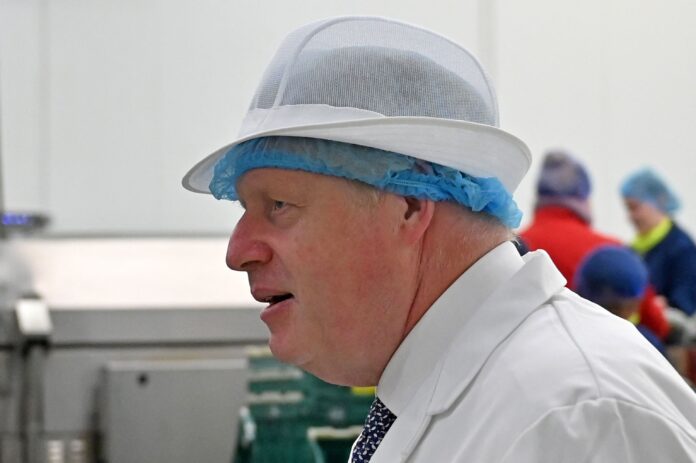The “premier” Boris Johnson has warned the European Union against a trade war on account of the Ireland Protocol and has assured that what his country intends is simply to “introduce a set of trivial adjustments”. Brussels, however, awaits with its sword held high the presentation, on Monday, of a law to unilaterally renounce the most controversial point of the Brexit agreement, considered as a possible breach of international laws.
The British employers CBI have warned the “premier” that his actions before the Protocol can trigger “a trade war” with the EU, to which Johnson has replied succinctly: “That would be a serious way of overreacting.” In statements to the LBC network, the “premier” reiterated that he does not accept the premise of violating international laws and stressed that the only thing he wants is to “fix the problems of the Protocol”, which in his opinion has raised trade barriers between Great Britain and Northern Ireland.
In a double defiance of international law, Johnson on Tuesday plans the deportation to Rwanda of more than 30 migrants who arrived in the UK illegally across the English Channel. The decision, allegedly described as “appalling” by Prince Charles himself, has received harsh criticism from the UN Refugee Agency (UNHCR) and faces last-minute appeals in the British courts.
“We knew there were going to be legal recourse, but our attorneys are on the ground and I have great respect for their profession,” Johnson said. “What we are trying to do is break the business model of human trafficking gangs. They are offering immigrants false hope.”
The flow of immigrants crossing the English Channel, however, continues to increase despite the announcement of the deportations to Rwanda. More than 10,000 people – mostly men of Iranian or Iraqi Kurdish origin – have washed up on British shores over the years. The figure is already double that of last year, when the record of 28,000 immigrants was reached at the end of the year.
Despite the serious political and economic problems he is facing, after the motion of censure supported by 41% of his deputies, inflation above 9% and growth stagnating for the second consecutive month, Boris Johnson seems to have chosen conscientiously two battles of international scope to try to recover the popularity lost before the voters, even at the cost of creating new and serious divisions within his own country.
“Everything points to the government planning to break international law,” Labor foreign affairs spokeswoman Rachel Reeve warned of Ireland’s Protocol Act, drawing a parallel to Johnson’s own behavior in the Partygate scandal. “This government already has a record of breaking the law and that is something Labor cannot support.”
“It is shameful that Northern Ireland is used as a bargaining chip in the collision with Europe, and all designed to boost the ego and leadership ambitions of Boris Johnson or whoever is his successor,” said Mary Lou McDonald, President of Sinn Féin, winner of the recent elections in Ulster.
“The Protocol is working, it has prevented a return to the hard border and it is the mechanism that gives Northern Ireland access to the single European market,” McDonald added. “That’s why Northern Ireland’s economy is now stronger than Britain’s, with the exception of the City of London. What the Government is doing, trying to break international law, can do enormous damage.” economic”.
The bloc opposition parties have demanded that the Government publish in full all the legal reports on the law that intends to unilaterally “amend” the Irish Protocol. “The refusal to make legal advice public is yet another cover-up attempt by Boris Johnson, with his repeated lies and violations of the law,” said Liberal Democrat Alistair Campbell.
The unions have meanwhile asked the government to suspend plans for deportations to Rwanda until the legality of the program is sufficiently proven. A high court gave the initial go-ahead Friday, but a coalition of pro-immigrant groups filed a last resort Monday in hopes of stopping the first flight. Several demonstrations of support took place between both in cities like Manchester with banners against the “externalization” of immigrants. The Archbishop of Canterbury, Justin Welby, also condemned the Rwanda plan as “contrary to the nature of God.”
Conforms to The Trust Project criteria








